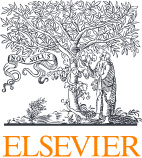|
STUDENT PARTICIPATION CHAIRS
Trilce Estrada (University of New Mexico, USA - estrada@cs.unm.edu)
Jay Lofstead (Sandia National Laboratories, USA - gflofst@sandia.gov)
Student Mentoring Program for 2018
The annual IPDPS PhD Forum event will continue with the traditional poster presentations by students working toward a PhD in broadly defined areas related to parallel and distributed processing. In addition, continuing the program initiated in 2014, there will be a broader, enhanced program to include several evening and lunch-time sessions to provide the student participants coaching in scientific writing and presentation skills.
Participating students will have the opportunity to both present their research work and interact with senior academic and industry people in an informal setting. In addition, there will be mentoring sessions to help students improve communication skills, obtain valuable information for career planning, get familiar with a few of the trendy research topics, and make valuable contacts – all while enjoying the IPDPS main conference and many associated workshops.
The Student Research Program will be scheduled so that the participating students can follow all the main scientific and social events of the conference, and it is open to all students, including the authors of papers presented at the conference.
PhD Forum Posters
Thirty-one students have been selected to display a poster describing their dissertation research and to participate in the IPDPS 2018 Student Mentoring Program. The posters in the list available here have been numbered for easy reference.
- PhD Forum Posters on display all day Tuesday & Wednesday
- Student presenters available during all breaks and 5:30-7:00 PM Wednesday
Information for PhD Forum Poster Presenters
The conference area for display of posters will be available Monday evening. All posters should be on display by 9:30 AM on Tuesday, May 22nd. They will be in a room that is near the lobby area where attendees will be able to view posters between sessions. The posters should be 32x40 inches (or 80x100cm). Student presenters are warmly encouraged to prepare professional rolled up posters, in contrast with a mosaic of small slides to post. The poster should preferably be printed with a high-quality device. The location for hanging the poster will be numbered using your PhD poster number in the program. Push pins or tape will be provided for mounting your poster. See poster guidelines at end of page.
Planned Program (details will be provided closer to the time of the conference)
Day |
Time |
Activity |
Tuesday |
Lunchtime |
Seminar: What I Wish I Had Known about Giving Technical Presentations and Doing Technical Writing – H.J. Siegel, Colorado State University |
Tuesday |
Evening |
To Be Announced |
Wednesday |
Lunchtime |
Workshop on poster presentation skills (training for the poster session) |
Wednesday |
Evening |
Poster Session & Banquet (poster awards presented) |
Thursday |
Lunchtime |
Panel on research and career planning (academia, research labs, industry). |
The seminar on paper writing and presentation skills is advice based on over 40 years of experience, and will include a discussion among all attendees. It will be open to all students attending the conference, as well as anyone else who would like to attend. It will be led by H.J. Siegel, Professor Emeritus at Colorado State University, who is a Fellow of the IEEE, a Fellow of the ACM, a member of the IPDPS Steering Committee, a past IPDPS Program Committee Chair, and a past IPDPS General Chair.
The Workshop on poster presentation skills offers a chance for everyone to give a 3 minute talk about their poster and gain feedback from both the mentors and their peers. The goal is to be positive about the poster and provide constructive comments on both the poster material organization as well as the quick presentation.
The Panel on research and career planning will include representatives from academia, research laboratories (non-industry), and industry. After a short presentation from each about what their job entails and why you might consider it, attendees are open to ask any questions to help guide what decision is the right one for them.
Students are encouraged to engage with conference attendees during the paper sessions, and scheduling of student events supports this. Making connections that help incorporate attendees into the community is an important additional goal. To facilitate this process, forum mentors will make appropriate introductions for student participants.
Poster Guidelines
Some basic guidelines on how to organize your poster include:
- Relax, posters are intended to engage an interested person in conversation and then support that conversation.
- Posters should be no larger than an A0 paper size. If it is horizontally structured, please still fit within the portrait dimensions specified (33.1 x 46.8 in max).
- Be sure the title and organizational affiliations are clear along the top.
- Consider the normal left-to-right, top-to-bottom reading order for English when organizing the contents. Multiple columns are perfectly acceptable
- Include a QR code to a website that includes the poster abstract and an electronic copy of the poster itself.
- If existing publications by the poster authors exist on the topic, these should be the only references.
- Balance the amount of graphics and text. A visitor should be able to get the high level view within 1 minute and decide if they want to engage you.
- Graphics should show structure and general measurements that illustrate the results.
- Text should explain things without large paragraphs explaining.
- Text should be large enough to easily read at 6 feet (2 meters) distance.
- Assume the viewer is somewhat to generally knowledgeable about the topic eliminating the need for long motivational passages.
- Provide sufficient motivational material to show at a glance the poster authors understand potential impact.
- Compensate for color blindness is important. Design for monochrome, but add color to highlight.
Questions?
Any questions should be addressed to both chairs to ensure the quickest response. |




